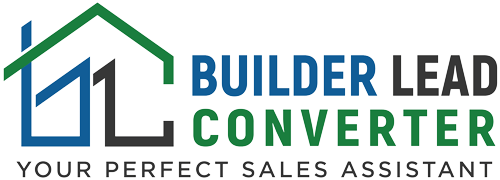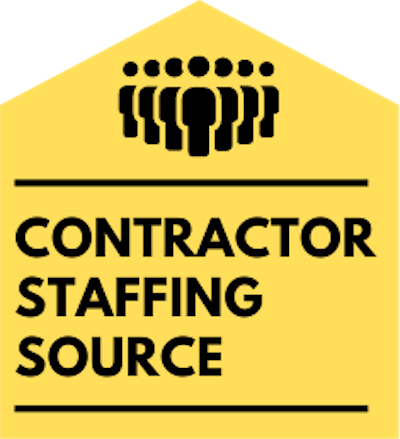Unlock the Benefits of Home Building CRM: Streamline Your Processes and Increase Profits
The good news is that home builders today can unlock the unique benefits of Home Building CRM to help streamline their processes and increase profits. By using a CRM, you can reduce manual efforts and labor costs and improve your data accuracy. At the same time, you can enable better customer service and drive more efficient customer relationships.
However, it’s not enough to just download a CRM and start using it. To take full advantage of Home Building CRM, you must first understand the different types of CRMs and how to use them to streamline your processes across the board.
In this blog post, we’ll explore the benefits of Home Building CRM and show you how to unlock these benefits and streamline your processes to maximize profits.
Home building CRMs provide comprehensive solutions tailored to the unique needs of residential home builders, helping them become more organized, efficient, and profitable. It also helps them build stronger relationships with current and potential customers.
What is Home Building CRM?
In sum, while there may be some drawbacks to incorporating a Home Building CRM into your business (such as increased costs in certain cases), there’s no denying the advantages offered by advanced customer relationship management systems when it comes to ensuring efficient operations and providing exceptional customer service. By tapping into these advantages, you can unlock the potential for greater profits for your business. And for those willing to take the next step in making that potential real by implementing a Home Building CRM solution – the rewards are yours for the taking. Let’s explore these potential rewards further in the next section.
Benefits of Home Building CRM
CRM systems can also be used as a predictive tool for identifying trends in customer behavior that could result in further sales. By utilizing machine learning algorithms and text mining analysis, homebuilders will be better equipped to estimate what types of products and services each customer might need in the future. Anticipating customer demands can produce invaluable insights into how the business can optimize future operations which could translate into more satisfied customers and more profitable outcomes.
This data-driven understanding of clients’ needs is key for developing successful relationships with customers. By forming strong connections with their customer base homebuilders can forge reliable partnerships that lead to improved repeat purchases, referrals, and long term loyalty that encourage lasting success for their businesses.
By unlocking the full potential of Home Building CRM, it’s possible to reduce costs while providing superior service. While automating basic customer service tasks may at first appear counterintuitive amongst an industry focused on human interaction; taking a holistic approach that combines personalized contacts with automated operations can increase customer satisfaction while streamlining operations and increasing profits. Embracing this strategy will provide a valuable asset for any home building business looking to advance their operations and maximize growth potential.
Having demonstrated the potential benefits of Home Building CRM, it’s now essential to focus on real time customer tracking and management to leverage these advantages for your business.
Real Time Customer Tracking and
Management
Real time tracking and management also enables efficient communication between customers and home building professionals in a timely manner. The ability to quickly review all customer information right on a device or computer screen rather than having to look through scattered files or paperwork allows salespeople or customer service representatives of any size home building corporation the capability to deliver personalized experiences that meet each individual customer’s needs and wants. These positive interactions can then be used generate leads or increase return customers within a shorter period of time.
Overall, home building industry benefits greatly from having access real time customer tracking as a part of its long term CRM strategy. Having access to detailed customer profiles and analytics on a unified platform provides versatile power when it comes to managing clients efficiently and tailor marketing communications for lasting relationships. With these favorable conditions committed to optimizing operations, next up we take a closer look at the progress made by streamlining processes and fostering collaboration between team members in the home building process.
Increased Efficiency and
Team Collaboration
Effective collaboration between different departments is also made possible with a reliable CRM system. Teams can easily communicate their progress and share resources by utilizing the powerful organizational capabilities of CRM solutions. Tasks can be managed and tracked through shared digital workspaces. Having access to up-to-date customer information allows teams to work together quickly and accurately towards meeting customer demands, thereby enabling higher levels of overall efficiency and productivity.
With a CRM platform, tasks can also be streamlined among different departments. Instead of manually transitioning data between each section for their own internal uses, tasks are automated. This saves time for the employees to dedicate to higher impact tasks that require more attention from them. Ultimately, this results in less duplication of efforts between departments and fewer mistakes due to miscommunication.
CRM technology helps home building companies unlock the potential of improved efficiency and team collaboration. With this technology in place, managers can ensure that their teams are working effectively together as well as performing better individually. Looking ahead, we will discuss some of the features that a home building CRM solution provides in order to achieve maximum results.

Features of Home Building CRM
For those who are debating if this type of software is right for them, they should keep in mind the benefits that come with having these detailed features. It allows teams an organized platform in which they can communicate and smoothly transition tasks between themselves. Furthermore, it also provides a much more efficient way to save customer information and make sure that it’s up-to-date, ensuring team members have access to necessary data when needed most.
The application of Home Building CRM’s features brings about smoother workflows for teams and saves precious time for business owners who are focused on growing their venture. With streamlined collaboration across multiple branches, such as sales and construction, customers can rest easy knowing that their interests are looked after every step of the way.
The advantages Home Building CRM offers certainly don’t stop there; its contact management capabilities are equally beneficial for businesses seeking to retain productive relationships with customers. By relying on a reliable system to store data, users will have peace of mind that information is saved accurately and promptly available when they need it most. With that said, let’s take a look at how Home Building CRM can help you manage contacts in the most effective way possible.
Contact Management
On the other hand, some may argue that it’s possible to keep track of contact information without automated technology, such as using paper files or spreadsheets. While this may be true in the short-term, over time manual data entry can cause inaccuracies due to human error or omissions. In addition, if employee turnover occurs or an individual leaves your organization, then all existing records including contacts must be re-entered manually. There are also privacy concerns associated with manually storing contact data versus using a secure cloud CRM solution that encrypts data for added security.
To benefit from home building CRM’s wide range of capabilities, the efficient input and management of contact information is essential. The enterprise-grade automation provided by modern CRMs can eradicate unnecessary busywork, freeing up your staff to focus on more important matters like understanding customer needs and driving face-to-face interactions in order to increase engagement and boost satisfaction levels. As we move past the basic utility of contact management and into tracking project data and leading customer analytics practices however, home building CRM shines even brighter — a reality we will discuss further in our next section.
Project Information Tracking
In addition, project information tracking provides builders with insight into how their projects are being handled. By creating a record of activities and tasks completed by workers, builders can monitor progress and evaluate which methods have been successful in completing certain tasks. This allows them to continuously fine tune their processes until they are running smoothly and efficiently.
Having this valuable data at their disposal also allows builders to compare different employees or teams on similar projects in order to find key differences in how they were handled. This type of comparison helps identify what strategies work best, enabling builders to adjust future processes accordingly in order to maximize profit potential.
Project information tracking is an essential function of home building CRMs that enables builders to effectively streamline their processes while simultaneously increasing profits. As such, it’s important to understand all the features your particular CRM offers in order to gain maximum value from the system. Moving forward, let’s discuss some of the ways that you can make sure you are getting the most out of your home building CRM.
Must-Know Points to Remember

How to Get the Most Out of Your Home Building CRM
Having this data readily available through a centralized system supports better decision making, efficient communication about progress, and more accurate cost estimating for projects. Furthermore, by tracking key performance indicators (KPIs) such as customer satisfaction ratings from past projects using the CRM system, it is easier to identify what works and build a stronger process for the future.
The next step in getting the most out of a Home Building CRM is taking full advantage of its workflow automation capabilities. Automation reduces administrative burdens while ensuring repeatable processes are used across all projects. Automated reminders can alert team members when tasks need to be completed or timelines need to be adjusted or redefined. They can also provide notifications when due dates are approaching or deadlines are missed. By taking these proactive steps towards completion, teams are better equipped to handle challenging projects on-time and within budget constraints.
Finally, integrating various marketing communications into your Home Building CRM platform can help with customer outreach initiatives while providing contacts with valuable content such as webinars, newsletters, and demonstration videos. This type of content helps spread brand awareness as well as demonstrations of corporate capabilities in crafting custom homes – ultimately strengthening customer relationships for greater client retention and new business leads alike.
By following these strategies for utilizing a Home Building CRM system wisely, companies reduce costs associated with manual data entry errors, promote smoother workflow automation within their organization, and build stronger relationships with customers through improved marketing communication tactics. In turn, these organizations have the potential to maximize profits through streamlined processes and enhanced customer service experiences.
Frequently Asked Questions and Answers
blank
How does using a home building CRM save me time and money?
What features should I look for in a home building CRM?
How could using a home building CRM help my business grow?
Secondly, employing a CRM system will ensure that customer relationships are managed effectively and efficiently, helping to build stronger customer loyalty. By automating interactions with leads, categorizing them according to their progress in the sales process, and providing personalized communication, you can create strong relationships with customers that span far beyond simple transactions. Moreover, because customer data is saved in an organized system in perpetuity, you will have an ongoing record of customer feedback and preferences from which you can draw insights that will inform your strategies for future improvements.
Finally, by aggregating customer data points such as past purchases and interests, a home building CRM can give you detailed insight into consumer trends that you can use to drive marketing campaigns and develop new products or services. This will allow you to stay actively engaged with the market, giving you a competitive edge over those who don’t leverage the power of CRM technology.
All in all, using a home building CRM has the potential to improve profits while simultaneously boosting customer satisfaction—a win-win scenario that any intelligent business looks forward to achieving.





